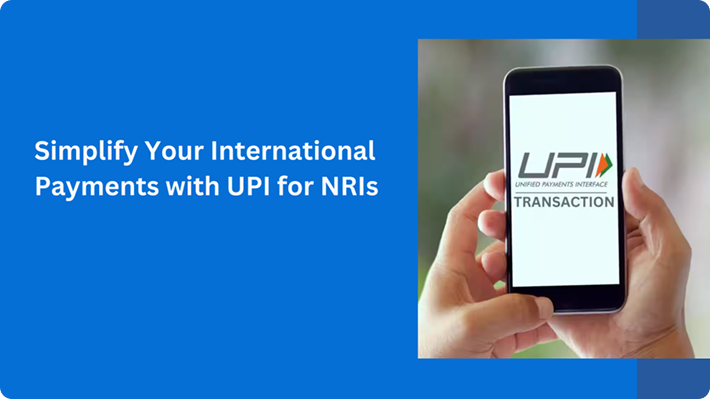
Selling Property in India
Made Easy for NRIs
Give all service under one roof and experience the convenience

Compliance

Savings

Travel cost

Years exp.
Our Services
All the Services You Need Under One Roof

We simplify the process of selling property in India for NRIs & OCIs by providing every essential service under one roof.

Legal Services
We help NRIs set up a Power of Attorney (GPA/SPA), so someone you trust can complete the sale for youwithout you having to travel to India.

Realtor Services
No matter where your property is in India, we help you find qualified buyers, verify them, and handle the entire sales process—smoothly and efficiently.

Tax Services
We help you save the most on taxes with Form 13 (Low Deduction Certificate) and Smart Investment strategies—all in full compliance with Indian tax laws.

Banking & Remittances
We help you set up NRO/NRE bank accounts , save 20% TCS on remittances, get the best international transfer rates and handle Form 15CA/CB filings.
Our Process
Empowering NRIs, Simplifying Property Transactions


Why NRI Edge
NRIs Can Save Up to 40% on Property Selling
 Multiple unproductive trips to India
Multiple unproductive trips to India
 High TAX deductions
High TAX deductions
 Multiple service providers/inconsistent approach
Multiple service providers/inconsistent approach
 Finding the right buyers is difficult
Finding the right buyers is difficult
 Last minute surprises/transparency issues
Last minute surprises/transparency issues

 Sell
without travelling to India
Sell
without travelling to India
 Form
13 and other strategies for lowest taxes
Form
13 and other strategies for lowest taxes
 One
team, One stop. A holistic, more efficient approach
One
team, One stop. A holistic, more efficient approach
 We
will generate & verify leads ensuring you get legible buyers
We
will generate & verify leads ensuring you get legible buyers
 Step-by-step process increasing transparency
Step-by-step process increasing transparency

Blogs

Processing General and Special Power of Attorney for Property Sales in India

Can US Citizens Inherit Agricultural Land in India?

How NRIs Can Sell Property in India Before Title Transfer: Check Guide

UPI for NRIs: Simplifying Payments, Making Transactions Faster and Cost-Effective
Frequently Asked
Questions
Find quick answers to common questions about our services, orders, and policies. Need more help? Contact our support team anytime!

Yes, by means of having a legally registered General Power of Attorney or a Special Power of Attorney in place.

A General Power of Attorney is a legal document that grants someone the authority to act on behalf of another person in various matters related to their property.

A Special Power of Attorney (SPA) is a legal document outlining the scope of authority given to an agent, by the principal. Under the SPA, an agent is given the powers to act on behalf of the principal to make specific legal or financial decisions.

Broadly, GPA gives a wider/ broader authority granting comprehensive powers to the agent. SPA is only preferred when there are limitations and the principal wants give only limited authority about specific tasks or transactions to the agent being appointed.

You can give a General Power of Attorney (GPA) or a Special Power of Attorney (SPA) to any trusted individual, such as a family member, friend, or professional advisor (like a lawyer or accountant. The stamp duty however, for the registration of a General Power of Attorney (GPA) can differ based on the relationship between the principal and the agent. Typically, many jurisdictions have lower stamp duty rates for first blood relatives compared to non-relatives or friends. It is important to check the specific regulations and rates in your local area, as these can vary.

If an agent acts beyond the authority granted in the POA document, their actions may be invalid and could result in legal consequences and liability for damages.

You can give a General Power of Attorney (GPA) or a Special Power of Attorney (SPA) to any trusted individual, such as a family member, friend, or professional advisor (like a lawyer or accountant. The stamp duty however, for the registration of a General Power of Attorney (GPA) can differ based on the relationship between the principal and the agent. Typically, many jurisdictions have lower stamp duty rates for first blood relatives compared to non-relatives or friends. It is important to check the specific regulations and rates in your local area, as these can vary.

No, Applicable tax is required to be paid on the Capital Gain only which is further bifurcated as long term and short term
Long-term Capital Gain: Property held for more than 2 years
Short-term Capital Gain: Property held for less than 2 years

- The TDS on sale of property by NRI is required to be deducted under Section 195
- The seller shall file an application in Form 13 with the Income Tax Dept to obtain No/Lower TDS certificate which needs to be given to the buyer for deducting the exact TDS. In case this certificate is not obtained by the seller from the Income Tax Department, the TDS should be deducted on the Total Sale Price and not on the Capital Gains. Therefore, it is very important for the seller to obtain this certificate from the Income Tax Officer.
- Also, what is important to know is that the buyer must have a TAN no to be able to buy a property from an NRI. Do note that PAN number is different than TAN number.
- If the buyer is buying a property jointly with someone; both must have separate TAN numbers even if they are from the same family.
- The TDS so deducted by the buyer shall be deposited with the Income Tax Dept within 7 days from the end of the month in which the TDS has been deducted
- This TDS is required to be deposited along with Challan No./ ITNS 281
- This TDS is required to be deposited along with Challan No./ ITNS 281 and can be deposited online as well as through various bank branches.
- After the deposit of TDS, the buyer is required to furnish a TDS Return.
- This TDS Return is required to be furnished in Form 27Q and is required to be furnished separately for each quarter in which the TDS has been deducted.
- This TDS Return is required to be deposited within 31 days from the end of the quarter in which the TDS has been deducted
- After the deposit of TDS and filing of TDS Return, the buyer is also required to furnish Form to the seller of property.

Effective TDS rate for Long-term Capital gains
- Less than INR 50 Lacs: 20.8%
- INR 50 Lacs – INR 1 Crore: 22.88%
- Above INR 1 Crore: 23.92%
Effective TDS rate for Short-term Capital gains
- Flat rate: 30%
- Flat rate: 1%

To reduce the TDS on Sale of Property by NRI, the NRI is required to file an application in Form 13 with the Income Tax Department for issuance of Certificate for Lower/No Deduction of TDS.
In absence of this certificate which is attested by the Income tax Officer, TDS gets deducted on the Total Sale Price of the property and not only on the Capital Gains. This Certificate hence helps the NRI’s in largely reducing the TDS Liability and therefore, most NRI’s opt for this certificate.

Yes, to reduce the TDS on Sale of Property by NRI, the NRI is required to file an application in Form 13 with the Income Tax Department for issuance of Certificate for Lower/No Deduction of TDS. This Certificate helps the NRI’s in largely reducing the TDS Liability and therefore, most NRI’s opt for this certificate. However, filing this form is a complicated task and therefore most NRI’s hire a Chartered Accountant for filing this application.

Many Countries levy Tax on sale of property by their Residents irrespective of the location of the property. For eg.: An NRI residing in US /Canada/ UK sells property in India, then both the country they are currently residing in (US/Canada/UK) and India will levy Tax on this transaction. The foreign country will levy tax because the NRI is residing in that country and India will levy tax because the property is in India leading to double taxation.
However, to avoid levy of double taxes, India has entered into Double Taxation Avoidance Agreements (DTAA) with nearly 90 countries. These agreements state that if a person has paid Tax on sale of property in India, then he can get a tax credit of the taxes paid in India which will reduce his tax liability in the other country.
Please note, proper disclosures are required to be made in this case in the country where the tax credit is being claimed.
Also note that Australia, New Zealand, US, Canada, UK are all included in the list of countries, India has signed DTAA with.

NRIs can open three main types of accounts: Non-Resident External (NRE), Non-Resident Ordinary (NRO), and Foreign Currency Non-Resident (FCNR) accounts. Each serves different purposes related to repatriation, income management, and currency holding.

NRE accounts are used to park foreign earnings and offer full repatriability with tax-free interest in India. NRO accounts are meant to manage income earned in India (like rent or dividends) with limited repatriability and taxable interest.

Yes, NRIs can remit funds freely from their NRE and FCNR accounts. However, repatriation from NRO accounts is subject to a limit of USD 1 million per financial year, and must comply with tax and regulatory guidelines.

To open an NRI account, you typically need a valid passport, visa/residence permit, proof of overseas address, PAN card or Form 60, and passport-sized photographs. Additional KYC documents may be required as per bank policies.

Interest earned on NRE and FCNR accounts is exempt from Indian income tax. However, interest from NRO accounts is taxable, and banks deduct Tax Deducted at Source (TDS) on such interest payments.

The 20% outward remittance tax, also known as Tax Collected at Source (TCS), was introduced in India's Union Budget 2023. Here are the key points:
- Applicability: This tax applies to most foreign remittances made by Indian residents and Non-Resident Indians (NRIs) under the Liberalized Remittance Scheme (LRS).
- Threshold: A 20% TCS is deducted on foreign remittances over Rs. 7 lakhs.
- Purpose: It covers remittances for investments, purchase of foreign assets, gifting money abroad, etc.
- Exceptions: Remittances for medical treatment and education expenses abroad have lower TCS rates.
- Collection: TCS is collected by banks/authorized dealers at the time of remittance.
- Tax Credit: NRIs can claim the TCS paid as a tax credit.
This tax adds an extra burden on large foreign remittances by NRIs under the LRS, but remittances from NRO/FCNR accounts are exempt when done through The Remittor Process.

TCS Rates:
- 20% on foreign remittances over Rs. 7 lakhs (except education and medical)
- 5% on remittances for overseas tour packages (no threshold)
- 5% on education remittances over Rs. 7 lakhs (non-loan case)
- 0.5% on education loan remittances over Rs. 7 lakhs
Calculation MethodL
- Calculate the amount exceeding the threshold limit (if any) for the transaction type.
- For example, if an NRI remits Rs. 10 lakhs under LRS (non-education/medical), 20% TCS applies on Rs. 3 lakhs (Rs. 10 lakhs - Rs. 7 lakhs threshold).
TCS Amount = (Remittance Amount exceeding threshold) x Applicable TCS Rate
- For Rs. 10 lakhs, TCS amount = Rs. 3 lakhs x 20% = Rs. 60,000
The TCS is deducted upfront by the authorized dealer (bank) before transferring funds. For remittances without a threshold limit, like overseas tour packages, the TCS rate applies to the full amount.

Remittor is a wealth transfer platform for Global Indians, ensuring compliance management for transactions. The Remittor Process helps you transfer wealth globally without losing money to unnecessary taxes. Our services include:
- Transaction advisory
- Integrated banking services
- Competitive remittance rates up to INR 8 crores
- Compliance management to avoid the 20% TCS

Yes, as a registered remittance agency, our partners hold an FFMC license for currency conversion, and all transactions are processed through RBI-authorized partners.

NRIs can remit up to $1 million per year from NRO accounts without TCS. Under LRS, every Indian resident can send up to USD 2,50,000 in a financial year for various purposes.

If you are an Indian citizen residing abroad, you can convert your regular savings account to an NRI account for benefits like higher interest rates, no remittance restrictions, special investment schemes, and easy fund repatriation.

Remittor will schedule a call with the bank for you. You'll need to submit documents like proof of NRI status, passport copy, overseas address proof, and an NRI declaration form.

Intermediary and beneficiary bank charges (NOSTRO Charges) apply, varying based on transaction size. Additional charges of 1.25% to 2.5% may apply if paying via debit card.

A PAN card is mandatory. For proof of address, provide any one of Aadhar, Passport, Voter ID, or Driving License. Document verification is done in real time.

You can send funds for:
- Overseas education (fees and living expenses)
- Family maintenance
- Personal gifts or donations
- Private visits
- Business travel
- Emigration and related fees
- Employment processing fees
- Medical treatment abroad

You can send money to:
- Parents
- Children
- Spouse
- Siblings
- Grandparents/Grandchildren
- Parents-in-law

NRIs can open three main types of accounts: Non-Resident External (NRE), Non-Resident Ordinary (NRO), and Foreign Currency Non-Resident (FCNR) accounts. Each serves different purposes related to repatriation, income management, and currency holding.

NRE accounts are used to park foreign earnings and offer full repatriability with tax-free interest in India. NRO accounts are meant to manage income earned in India (like rent or dividends) with limited repatriability and taxable interest.

Yes, NRIs can remit funds freely from their NRE and FCNR accounts. However, repatriation from NRO accounts is subject to a limit of USD 1 million per financial year, and must comply with tax and regulatory guidelines.

To open an NRI account, you typically need a valid passport, visa/residence permit, proof of overseas address, PAN card or Form 60, and passport-sized photographs. Additional KYC documents may be required as per bank policies.

Interest earned on NRE and FCNR accounts is exempt from Indian income tax. However, interest from NRO accounts is taxable, and banks deduct Tax Deducted at Source (TDS) on such interest payments.
Schedule a call with Gaurav!




Got Questions?
Get Answers in No Time!
Whether you're looking for expert advice on selling property in India, understanding legal implications, or navigating the complexities of NRI tax and compliance, Gaurav is here to provide tailored solutions to meet your needs
Join Our Community
 WhatsApp
WhatsApp
Join our WhatsApp community for updates, discussions, and exclusive offers. Connect, share ideas, and grow together.
 Newsletter
Newsletter
Subscribe to our newsletter for the latest updates, insights, and exclusive content. Stay informed—subscribe now!


















